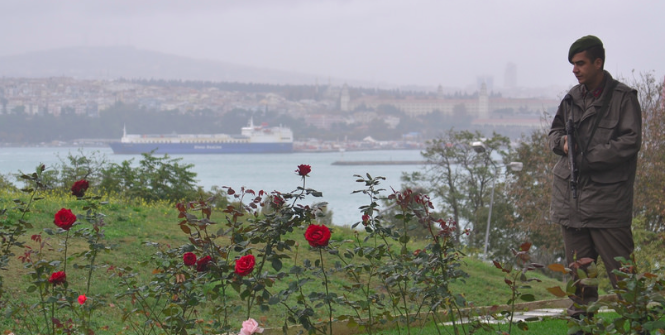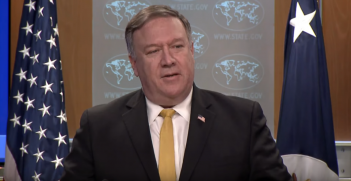A New Election May Be On The Horizon In Turkey

Recent weeks witnessed the Turkish army attacking ISIS and the Kurdistan Workers Party (PKK) simultaneously, following a suicide bombing in the town of Suruc, across from the Syrian town of Kobane.
The suicide bomber was a 21-year-old university student, of Kurdish background, from the province of Adiyaman. His parents say they made at least three reports to the police in the past, worried about a café with a prayer room that their son had been frequenting. Police say they raided the premises but could not find anything untoward.
The suicide bombing was, reportedly, ordered by ISIS against a group of young people, mostly of Kurdish background, that were intending to cross into Syria and go to Kobane in a show of support. This was followed by the shooting of a Turkish soldier and the wounding others by ISIS members from across the border. Then there were accusations that Turkish security forces failed to protect the group, leading to demonstrations and attacks that cost the lives of some Turkish police and army personnel. The Turkish Government then unleashed the armed forces against both ISIS and PKK. But it appears PKK, which is on the list of terror organizations in the US, most EU countries and Australia, is receiving more of the attention. Increasingly this appears to be beyond a retaliation for the recent killings and a suicide bombing of an army port by PKK and some even link it to the result of 7 June elections. The attack on ISIS positions has already ended and Turkish reprisals appeared to be limited to some shelling and air attacks without crossing into the Syrian airspace. ISIS could be observed digging trenches across the border, only a few hundred metres from Turkish forces, without much concern for their safety. The ISIS leadership has also been quiet, although the ISIS website in Turkish language has some scatching attack of Erdogan. But the attacks on PKK positions continue unabated.
Turkish Prime Minister Erdogan had been talking to the PKK for the past four years. He believed that a Sunni Muslim, rather than a Turkish identity in Turkey, (similar to the Ottoman Empire style he is fascinated with), would unite the country. In public speeches he avoided the word ‘Turkish’, referred to Ataturk and his friends as drunks and, five months ago on 28 February, he negotiated a deal, through the deputy prime-minister Erdogan, with the senior members of the Kurdish dominated People’s Democratic Party (HDP) in the Dolmabahce Palace in Istanbul. A ten-point agreement to solve Kurdish issues was drafted and released to the public, with much fanfare, by the Justice and Development Party (AKP) aligned media that peace was imminent and mothers will not need to cry anymore.
In return, PKK kept a low profile for a long time, especially before the parliamentary elections, because they were negotiating a deal with a president who was against the ethnic Turkish identity and were hoping, although cautiously, a deal would be struck that would eventually lead to an autonomous state in the south-east of Turkey, and that their leader, Abdullah Ocalan, would be freed.
What happened between last week and the February 28 draft agreement? The 7 June elections. Erdogan had tied everything to a win by the AKP in the elections, with the backing of Kurds, to change the parliamentary system to a presidential system for himself, and believed the Kurds would have to support the AKP in order to ensure a successful deal. Things did not go as planned. Religious Kurds who voted for him in the past nine elections deserted him for the HDP.
On the other side, because Erdogan was negotiating a deal with PKK, the nationalist Turks who voted for him in the past elections deserted him as well, and went back to Nationalist Movement Party (MHP). This meant the AKP lost its majority in the parliament. Erdogan knows that he cannot work with a coalition government as he would not be able to pull the strings as he does now. The leader of the People’s Republican Party (CHP) Kilicdaroglu recently complained that the only obstacle before a coalition is Erdogan as the current Prime Minister Davutoglu appears keen to form a coalition with the CHP. However, recent escalation of Kurdish issues in Turkey and increasingly tough line by Erdogan, unusually inconsistent with his rhetoric for a peaceful solution in the past, indicates that the concerns this may be linked to the 7 June election upset may be justified. Erdogan appears to have decided his only option is to go to the polls again, but not under the same conditions. Leaked correspondence from the AKP offices recently indicate the party members were told to prepare for a snap election soon, which could happen as early as 15 November.
The plan appears to be to link PKK, which is responsible for the recent execution of Turkish forces and a suicide attack on an army post with HDP and hope that some of the religious Kurds will filter back to the AKP and the HDP will fall below the ten percent threshold in a new election. The tough line and military campaign on PKK and ISIS (not sure how much he is really worried about ISIS threat) would then bring some of the nationalist Turkish voters back to the AKP. This would be enough to give the AKP and Erdogan, the majority they desperately want. Erdogan, who had been relatively quiet since the 7 June elections, appears to have been working on a come back plan. Increasingly, there are worrying signs that a president who stated in Jakarta only last week that ‘our only concern is Islam, Islam, Islam’ does not speak like the president of a secular republic and he will not give up, without a fight, his ambition to create a presidential system, whatever he thinks that is.
Sedat Mulayim is the Program Manager for Translating and Interpreting at the School of Global, Social and Urban Studies at RMIT University. This article can be republished with attribution under Creative Commons Licence.





